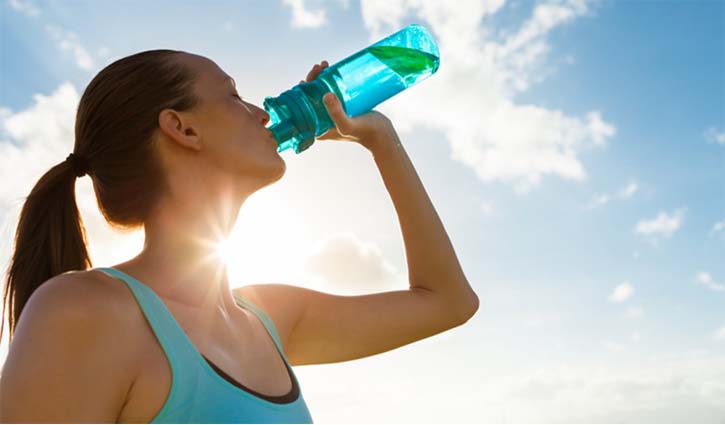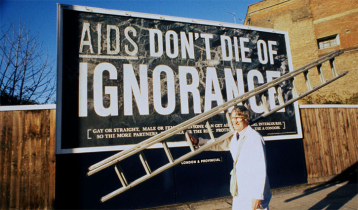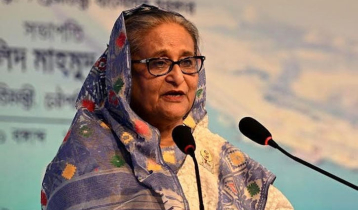How much water should you drink a day?
4 || risingbd.com

Risingbd Desk: In the early 19th Century, people had to be close to death before deigning to drink water. Only those “reduced to the last stage of poverty satisfy their thirst with water”, according to Vincent Priessnitz, the founder of hydropathy, otherwise known as “the water cure”.
Many people, he added, had never drunk more than half a pint of plain water in one sitting.
How times have changed. Adults in the UK today are consuming more water now than in recent years, while in the US, sales of bottled water recently surpassed sales of soda. We’ve been bombarded with messages telling us that drinking litres of water every day is the secret to good health, more energy and great skin, and that it will make us lose weight and avoid cancer.
Commuters are encouraged to take bottles of water onto the London Underground, pupils are advised to bring water into their lessons and few office meetings can commence without a giant jug of water sitting in the middle of the desk.
Fuelling this appetite for water is the “8x8 rule”: the unofficial advice recommending we drink eight 240ml glasses of water per day, totalling just under two litres, on top of any other drinks.
That “rule”, however, isn’t backed by scientific findings – nor do UK or EU official guidelines say we should be drinking this much.
Where did it come from? Most likely, it seems, from misinterpretations of two pieces of guidance – both from decades ago.
In 1945 the US Food and Nutrition Board of the National Research Council advised adults to consume one millilitre of liquid for every recommended calorie of food, which equates to two litres for women on a 2,000-calorie diet and two-and-a-half for men eating 2,500 calories. Not just water, that included most types of drinks – as well as fruits and vegetables, which can contain up to 98% water.
In 1974, meanwhile, the book Nutrition for Good Health, co-authored by nutritionists Margaret McWilliams and Frederick Stare, recommended that the average adult consumes between six to eight glasses of water a day. But, the authors wrote, this can include fruit and veg, caffeinated and soft drinks, even beer.
Water is, of course, important. Making up around two-thirds of our body weight, water carries nutrients and waste products around our bodies, regulates our temperature, acts as a lubricant and shock absorber in our joints and plays a role in most chemical reactions happening inside us.
We’re constantly losing water through sweat, urination and breathing. Ensuring we have enough water is a fine balance, and crucial to avoiding dehydration. The symptoms of dehydration can become detectable when we lose between 1-2% of our body’s water and we continue to deteriorate until we top our fluids back up. In rare cases, such dehydration can be fatal.
Years of unsubstantiated claims around the 8x8 rule have led us to believe that feeling thirsty means we’re already dangerously dehydrated. But experts largely agree that we don’t need any more fluid than the amount our bodies signal for, when it signals for it.
“The control of hydration is some of most sophisticated things we’ve developed in evolution, even since ancestors crawled out of sea onto land. We have a huge number of sophisticated techniques we use to maintain adequate hydration,” says Irwin Rosenburg, senior scientist at the Neuroscience and Ageing Laboratory at Tufts University in Massachusetts.
In a healthy body, the brain detects when the body is becoming dehydrated and initiates thirst to stimulate drinking. It also releases a hormone which signals to the kidneys to conserve water by concentrating the urine.
“If you listen to your body, it’ll tell you when thirsty,” says Courtney Kipps, consultant sports physician and principal clinical teaching fellow of Sports Medicine, Exercise and Health and UCL, and medical director of Blenheim and London Triathlons.
“The myth that it’s too late when you’re thirsty is based on the supposition that thirst is an imperfect marker of a fluid deficit, but why should everything else in the body be perfect and thirst be imperfect? It’s worked very well for thousands of years of human evolution.”
While water is the healthiest option since it has no calories, other drinks also hydrate us, including tea and coffee. While caffeine has a mild diuretic effect, research indicates that tea and coffee still contribute to hydration – and so do alcoholic drinks.
There’s little evidence suggesting that drinking more water than our body signals for offers any benefits beyond the point of avoiding dehydration.
Still, research suggests there are some important benefits to avoiding even the early stages of mild dehydration. A number of studies have found, for example, that drinking enough to avoid mild dehydration helps support brain function and our ability to do simple tasks, such as problem-solving.
Some studies suggest fluid consumption can help manage weight. Brenda Davy, a professor of human nutrition, foods and exercise at Virginia Polytechnic Institute and State University, has carried out a few studies looking at fluid consumption and weight.
In one study, she randomly assigned subjects to one of two groups. Both groups were asked to follow a healthy diet for three months, but only one was told to drink a 500ml glass of water half an hour before eating each meal. The group who drank the water lost more weight than the other group.
Both groups were also told to aim for 10,000 steps a day, and those who drank the glasses of water better adhered to this. Davy guesses this is because mild dehydration of around 1-2% is quite common, and many people may not realise when this happens – and even this mild level can affect our mood and energy levels.
But Barbara Rolls, a professor of intensive care medicine at University College London, says that any weight loss associated with drinking water is more likely to come from water being used as a substitute for sugary drinks.
“The notion that filling up on water before a meal will melt the pounds away is not well established, and water consumed on its own empties out of the stomach really quickly. But if you consume more water through the food you eat, such as soup, this can help fill you up as the water is bound to the food and stays in the stomach for longer,” she says.
Another alleged health benefit of drinking more water is improved skin complexion and better moisturised skin. But there is a lack of evidence to suggest a credible scientific mechanism behind this. (Read more about whether drinking extra water is good for your skin).
Those of us aiming for eight glasses of water per day aren’t doing ourselves any harm. But the belief we need to drink more water than our bodies signal for can sometimes lead to dangerous waters.
Too much fluid consumption can become serious when it causes a dilution of sodium in blood. This creates a swelling of the brain and lungs, as fluid shifts to try to balance out blood sodium levels.
Over the last decade or so, Kipps has been aware of at least 15 cases of athletes who’ve died from over-hydration during sporting events. She suspects these cases are partly because we’ve become distrustful of our own thirst mechanism and that we think we need to drink more than our bodies are calling for to avoid dehydration.
“Nurses and doctors in hospitals will see severely dehydrated patients who have serious medical conditions or who haven’t been able to drink for days, but these cases are very different from the dehydration that people worry about during marathons,” she says.
Johanna Pakenham ran the 2018 London Marathon, the hottest on record. But she can’t remember most of it because she drank so much water during the race that she developed over-hydration, known as hyponatremia. She was rushed to hospital later that day.
“My friend and partner thought I was dehydrated and they gave me a big glass of water. I had a massive fit and my heart stopped. I was airlifted to hospital and unconscious from the Sunday evening until the following Tuesday,” she says.
Pakenham, who plans to run the marathon again this year, says the only health advice offered by friends and marathon posters was to drink lots of water.
“All it would’ve taken for me to be okay was having a few electrolyte tablets, which increase the sodium levels in your blood. I’ve ran a few marathons before and I didn’t know that,” she says.
“I really want people to know that something so simple can be so deadly.”
The idea that we must be constantly hydrated means many people carry water with them wherever they go, and drink more than their bodies require.
“The maximum a person in the hottest possible heat in the middle of the desert might sweat is two litres in an hour, but that’s really hard,” says Hugh Montgomery, director of research at the Institute for Sport, Exercise and Health in London.
“The idea of carrying around 500ml of water for a 20-minute journey on the London Underground – you’re never going to get hot enough to sweat at that rate, even if you’re dripping with sweat.”
For those who feel more comfortable going off official guidelines rather than thirst, the UK’s NHS advises drinking between six to eight glasses of fluid a day, including lower fat milk and sugar-free drinks, including tea and coffee.
It’s also important to remember that our thirst mechanisms lose sensitivity once we’re over 60.
“As we age, our natural thirst mechanism becomes less sensitive and we become more prone to dehydration than younger people. As we age, we may need to be more attentive to our fluid consumption habits to stay hydrated,” says Davy.
Most experts agree that our fluid requirements vary depending on a person’s age, body size, gender, environment and level of physical activity.
“One of fallacies of the 8x8 rule is its stark over-simplification of how we as organisms respond to the environment we’re in,” says Rosenburg. “We ought to think of fluid requirement in the same way as energy requirement, where we talk about the temperature we’re in and level of physical activity were engaged in.”
Most experts tend to agree we don’t need to be concerned about drinking an arbitrary amount of water per day: our bodies signal to us when we’re thirsty, much like they do when we’re hungry or tired. The only health benefit of drinking more than you need, it seems, will be the extra calories you expend by running to the loo more often.
Source: BBC
risingbd/April 5, 2019/Mukul
risingbd.com






































